Heklina first arrived in San Francisco in the early ’90s, “with no real plan,” as she put in a KQED documentary from 2015. “Immediately, I fell in love with it, and I felt right at home.”
The Castro Honored Heklina with Drag, Music and Cackles
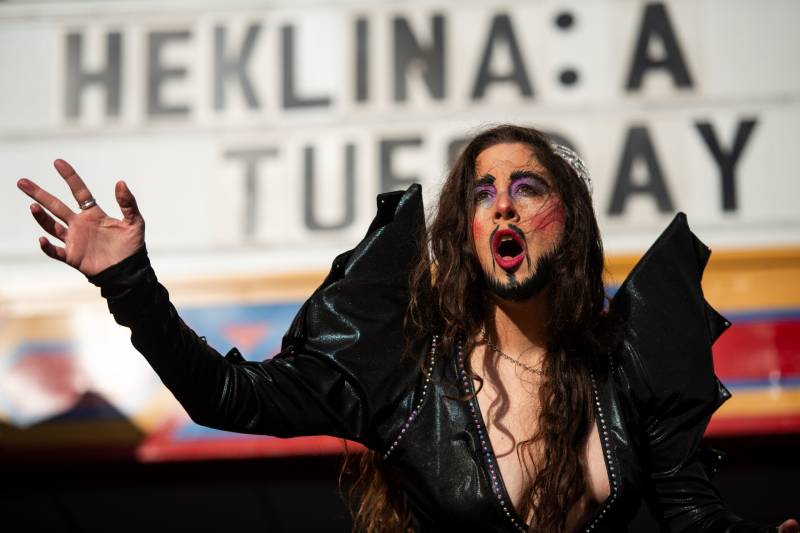
And on Tuesday evening, San Francisco returned that love to Heklina, who helped transform drag and elevate queer nightlife in the Bay Area over the past three decades. Heklina died unexpectedly on April 3 in London, where she had traveled to star in the drag parody Mommie Queerest at the Soho Theatre alongside her close friend Peaches Christ.
Friends of Heklina organized a memorial at the Castro Theatre, its iconic marquee emblazoned with Heklina’s name. Tickets sold out weeks in advance, so organizers closed down the entire block outside the theater, from Market to 18th Street, to bring in jumbotrons that live-streamed the memorial to a crowd of hundreds of well-wishers and admirers.
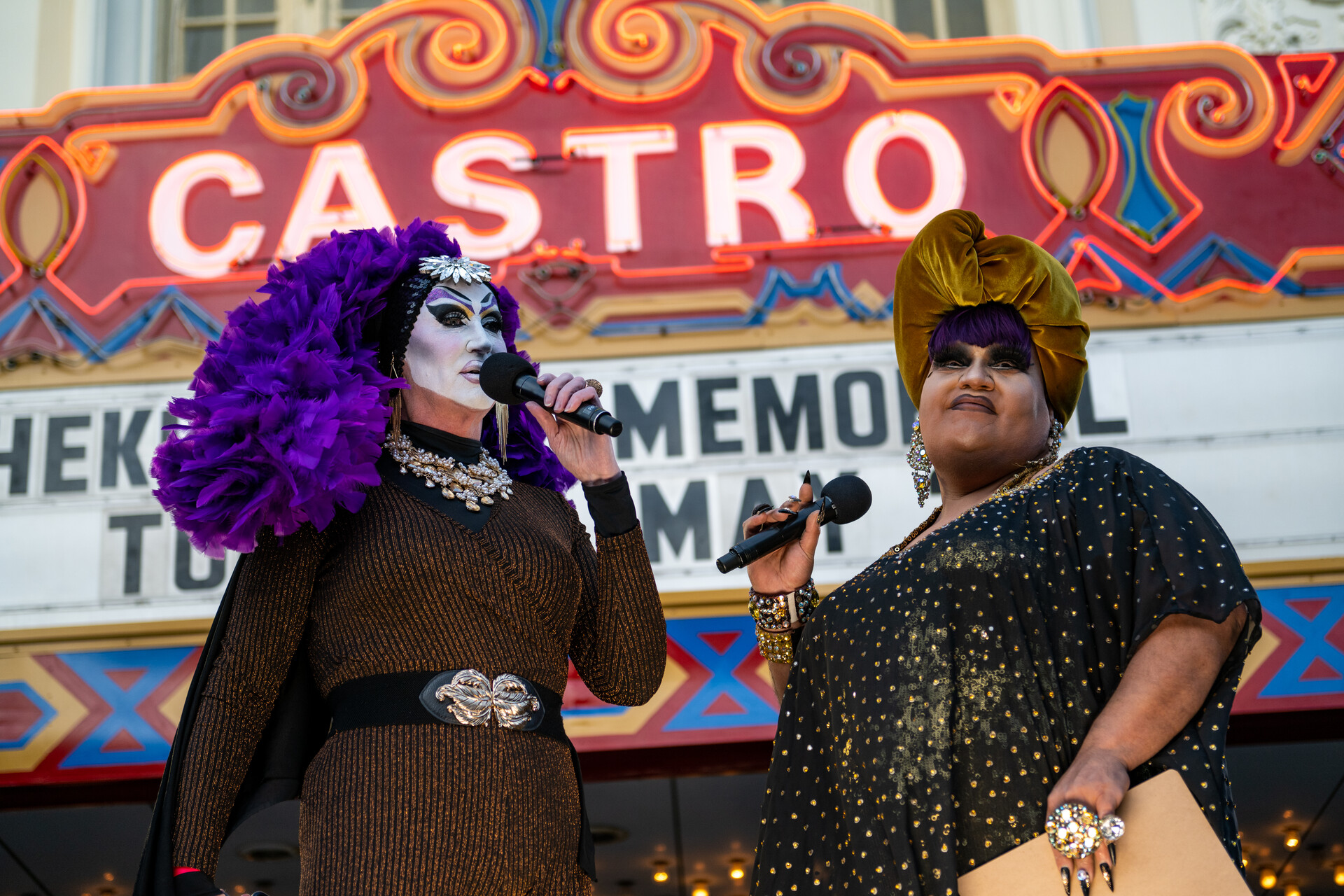
Heklina was not just a talented and versatile performer, she also dedicated herself to making more spaces available for drag in San Francisco. In 1996, she created the long-running show Trannyshack at The Stud (which she later renamed Mother), offering a platform for funny, rebellious and experimental new performers. Heklina also co-founded the popular SoMa club and cabaret Oasis in 2015 alongside D’Arcy Drollinger. Although she sold her ownership stake in 2019, she remained a beloved fixture there. Most recently, she hosted the popular Daytime Realness party at El Rio in the Mission.
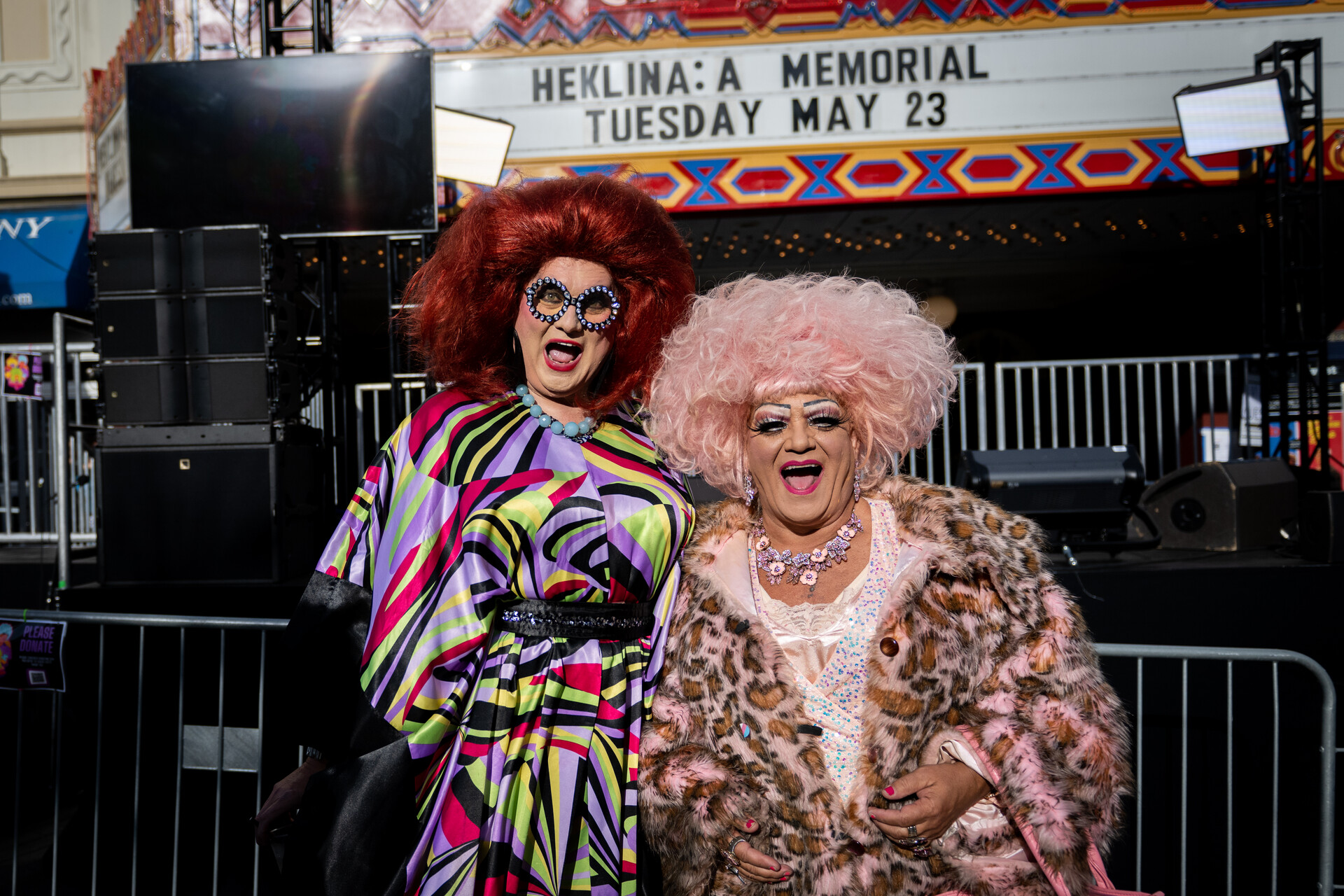
Many remember Heklina for her firecracker personality, which she owned in her drag. “I just feel like I’m living a very, perhaps to most people, abnormal life. I make a living doing something that is … not considered normal,” Heklina said in 2015. “When you’re walking down the street in makeup and a dress and high heels and all that stuff, you do get an attitude change. You become much more bold, [because] people yell things at you and you just have to be ready to take everything on.”
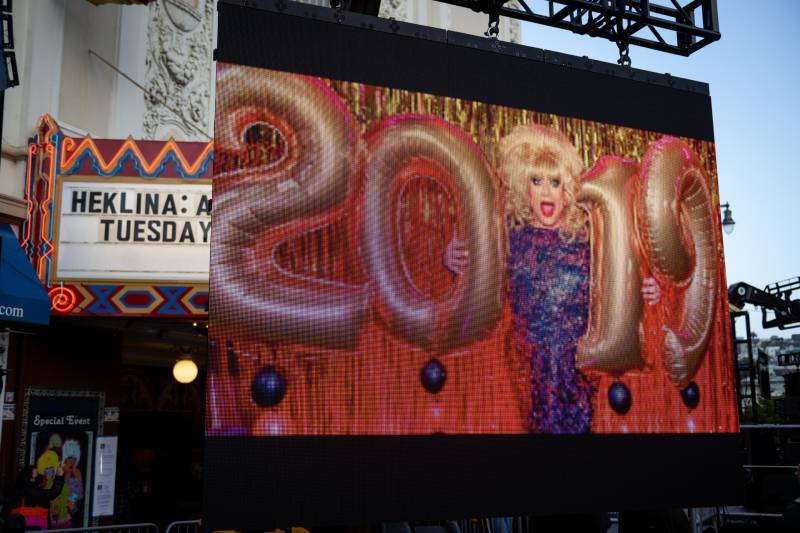
At the memorial hosted by LOL McFiercen and Dulce De Leche, Heklina’s longtime friend Nancy French took the stage to lead a moment of silence, but quickly changed her mind. “A basic moment of silence is not going to work,” French said. “It’s so basic, she would have hated it.”
French asked the crowd to join her in a “community cackle,” referring to Heklina’s loud and distinct laugh. With that, Castro Street filled with hundreds of cackles.
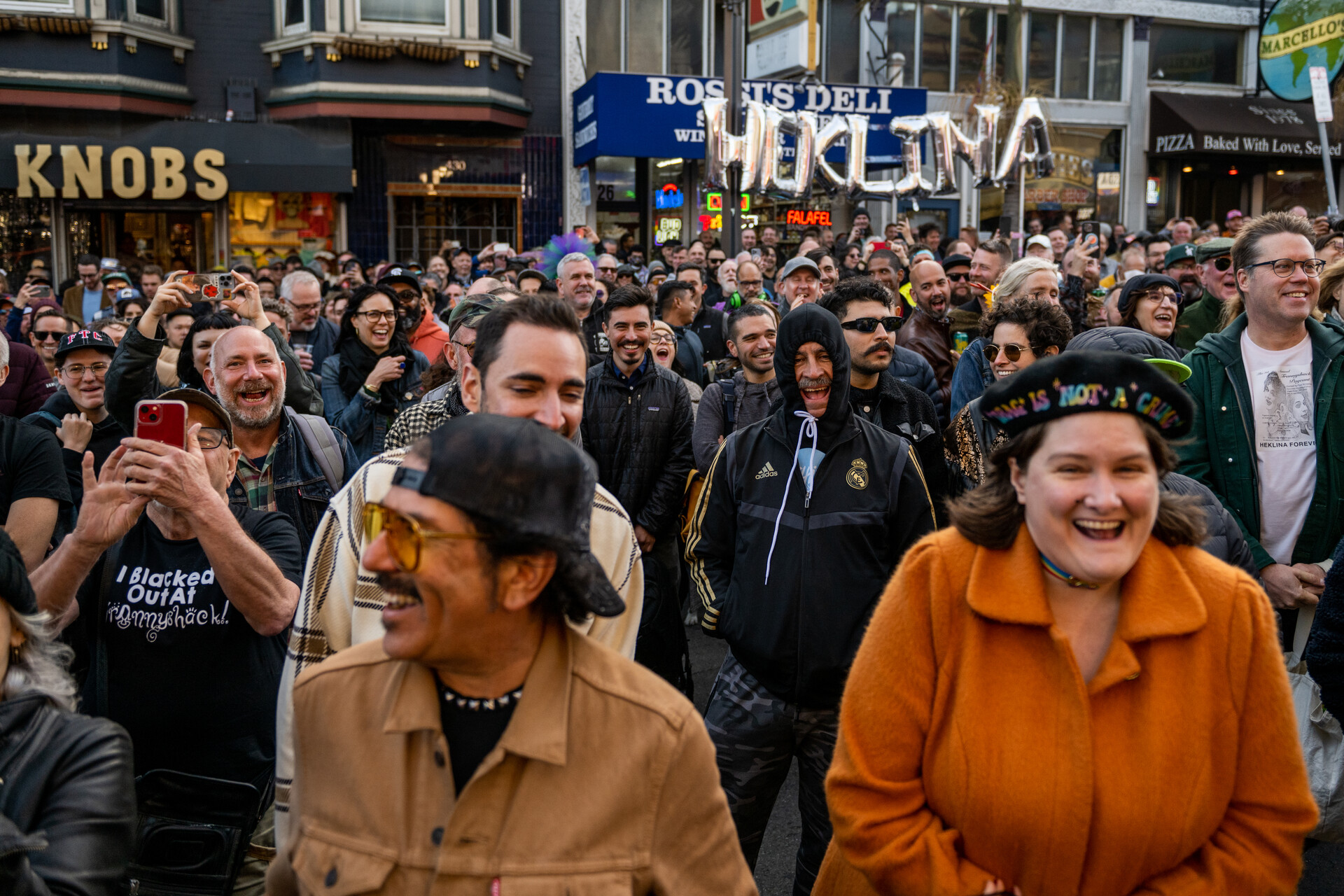
Jennifer Hofmann, 53, of San Francisco, stood outside the Castro Theatre to pay her respects for Heklina. “[Heklina] helped me grow up to figure out who I was in San Francisco,” she said, noting how meaningful it was for her to see Heklina perform at Trannyshack in the ’90s.
“She made it OK that drag wasn’t perfect. She made it OK that you could make ugly drag and people would love that and throw dollars at you, too,” Hoffman said. “As long as you had something to say and were willing to get up on stage and do it, you were always welcome.”
“She welcomed everyone,” Hoffman continued. “She sassed everyone. If you got sassed by Heklina, you felt like you’ve made it.”
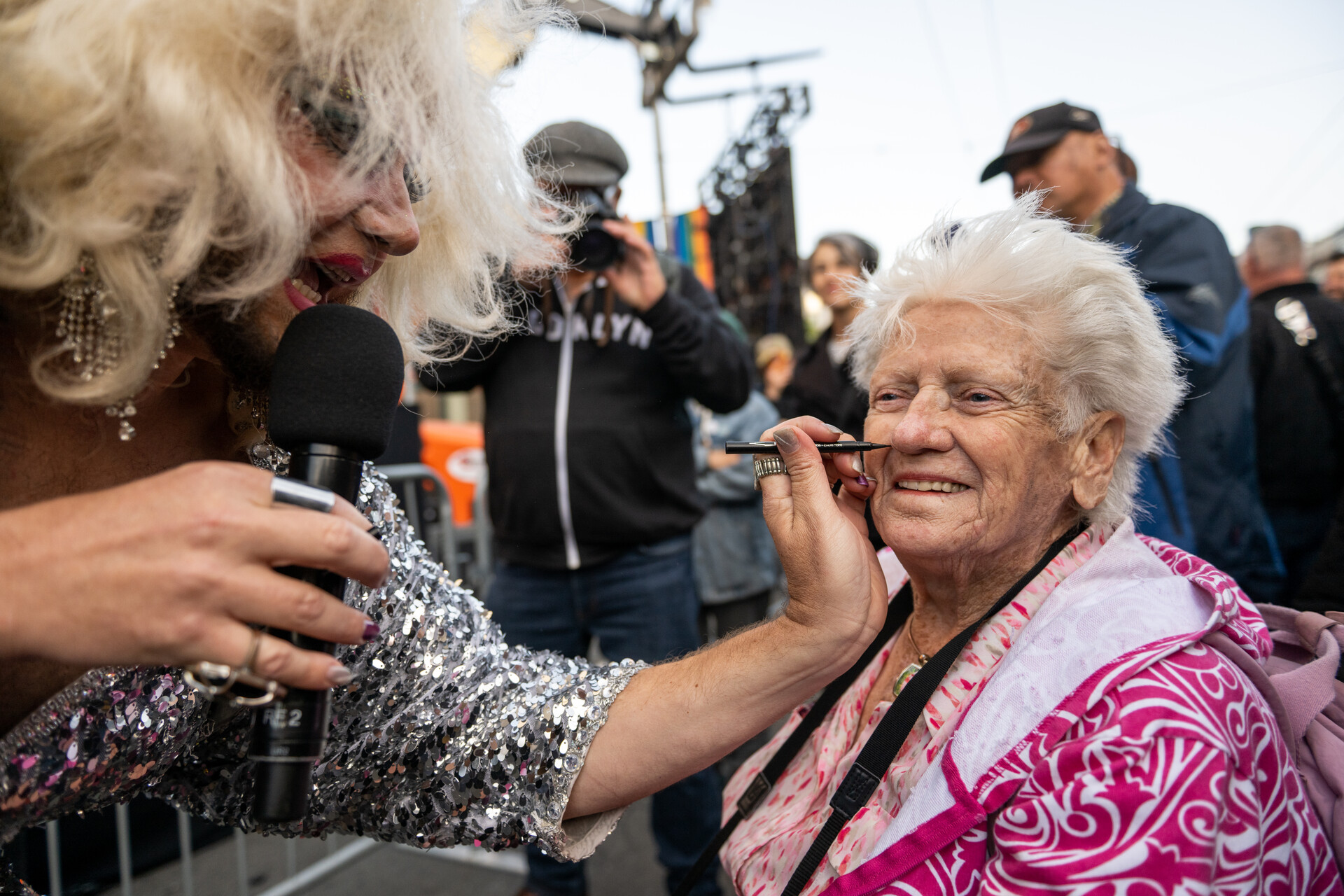
Darwin Bell, 57, moved to San Francisco in 1987, and Heklina was first drag queen he ever saw perform. “It was very punk rock,” he said of that first show.
Heklina embraced more transgressive forms of drag, he recalled, adding that he hopes that San Francisco doesn’t lose that edge without her around. Bell and his friends went to so many shows featuring or organized by Heklina that they would joke among themselves, “At the end of the world, there’s going to be Cher, roaches and Heklina.”
“I never even thought there would be world without Heklina,” he said. “She was always kind of bitter and funny and mean, and I just never thought there would be a world without her.”
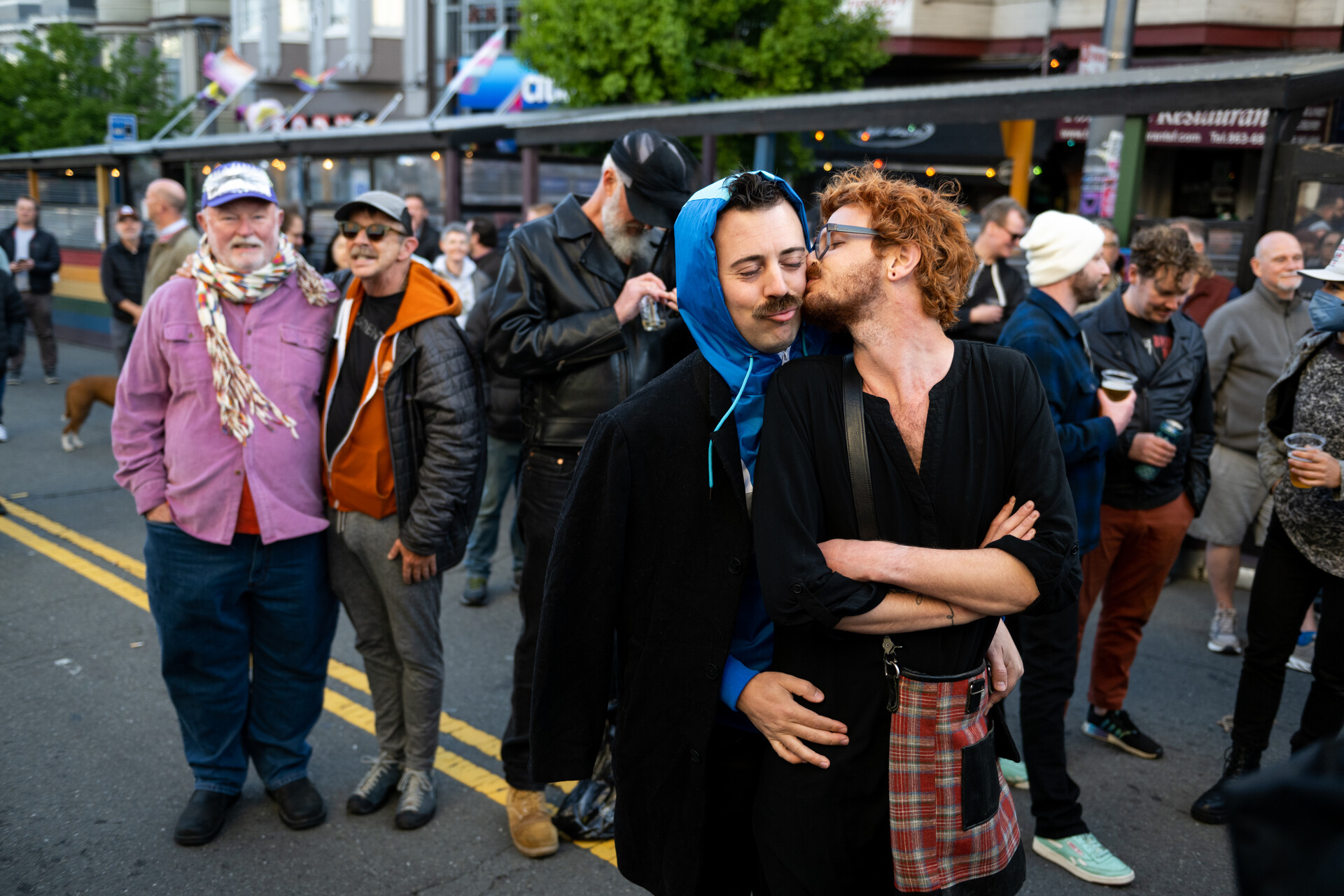
Inside, the Castro Theatre’s 1,407 seats filled up. Close friends of Heklina, including D’Arcy Drollinger and Peaches Christ, took the stage to share some of their fondest memories — infused with Heklina’s relentless humor and love for San Francisco.
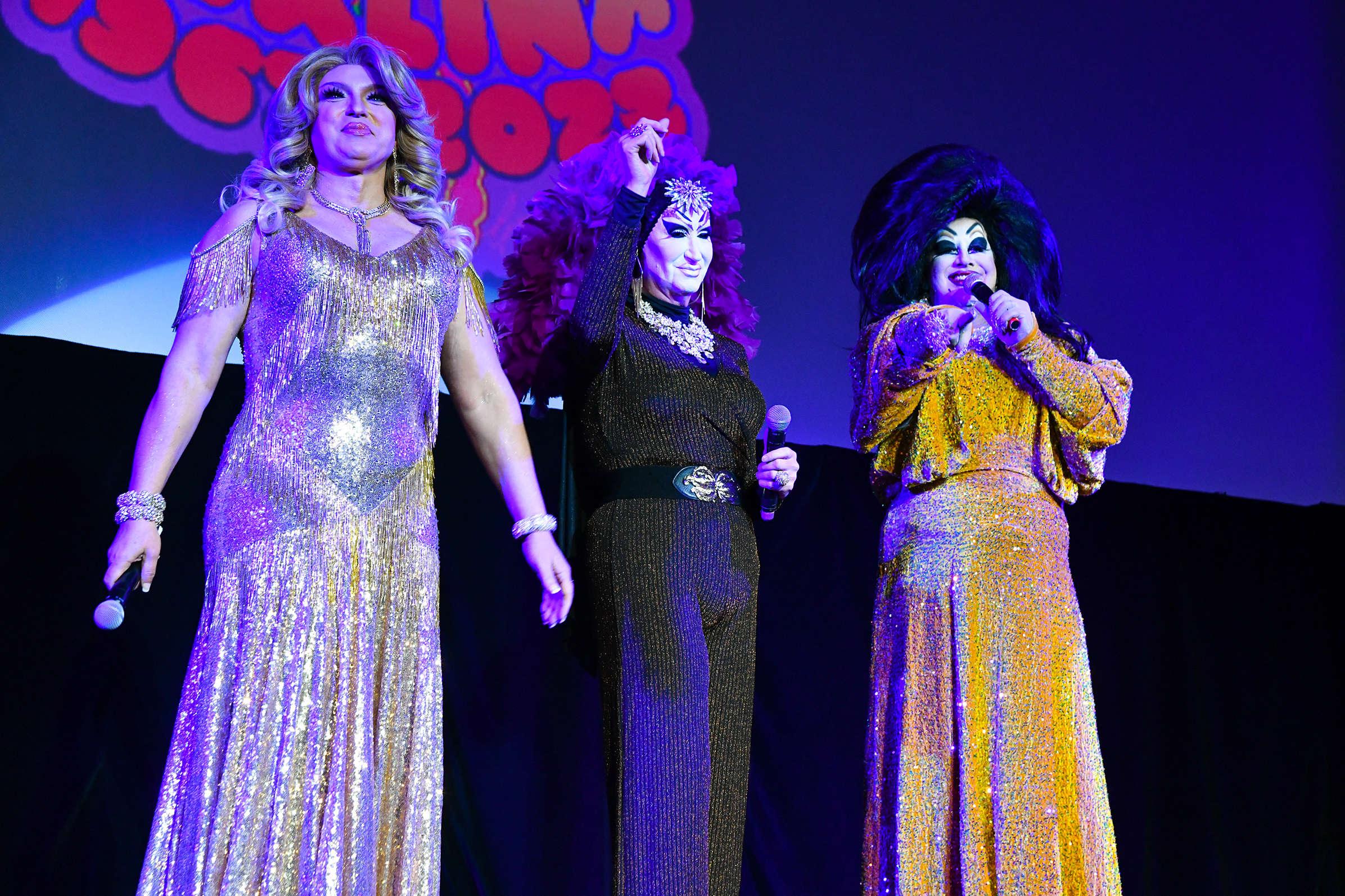
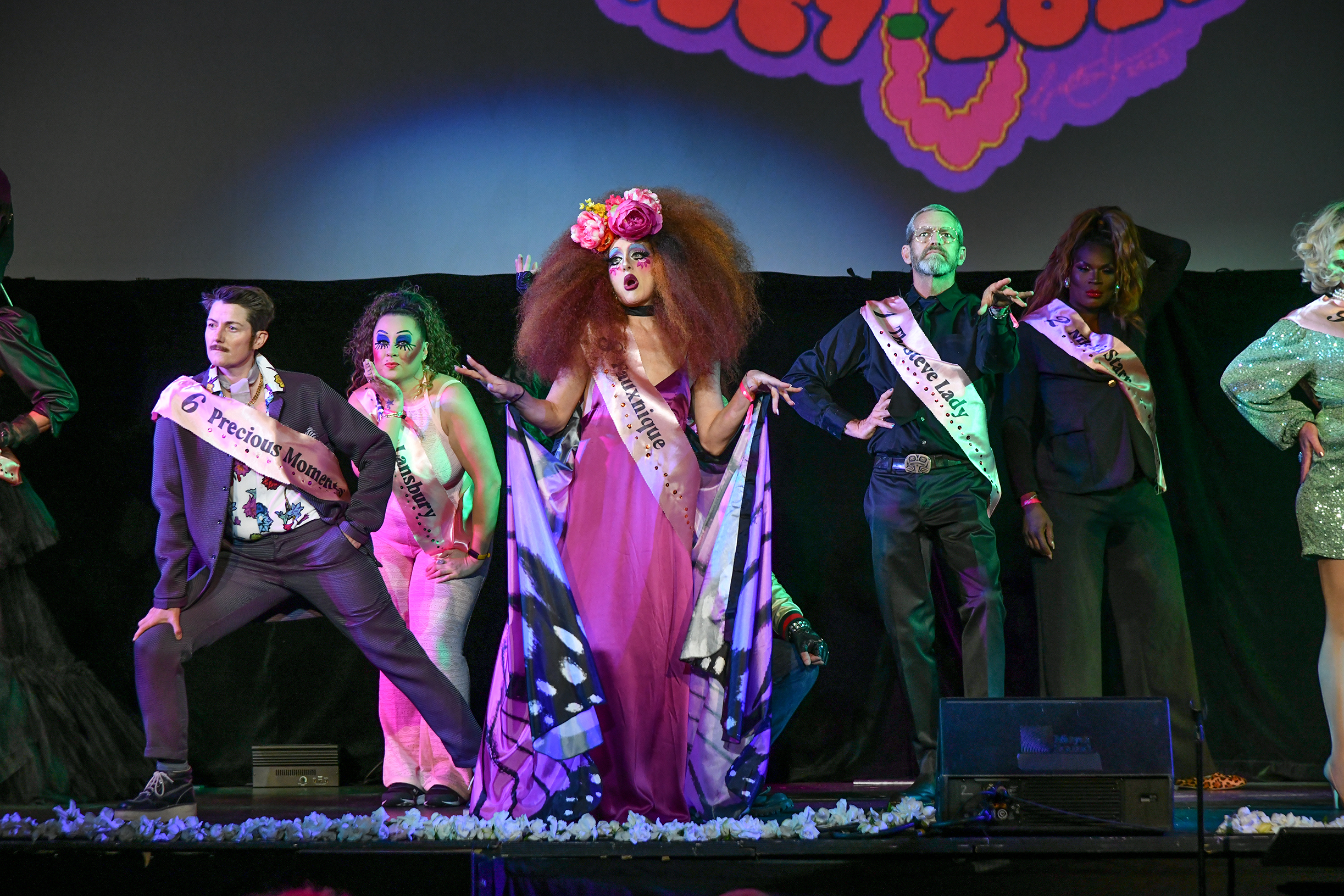
After the memorial, Margey DeCuir, a San Francisco resident who watched the livestream on Castro Street, wrote to KQED to share that for her, Heklina’s memorial not only honored her life, but represented “the strength and loyalty of the queer community, to come and gather in grief.”
“Heklina touched lives globally,” she wrote, “and her memorial was a much needed embrace within the community.”
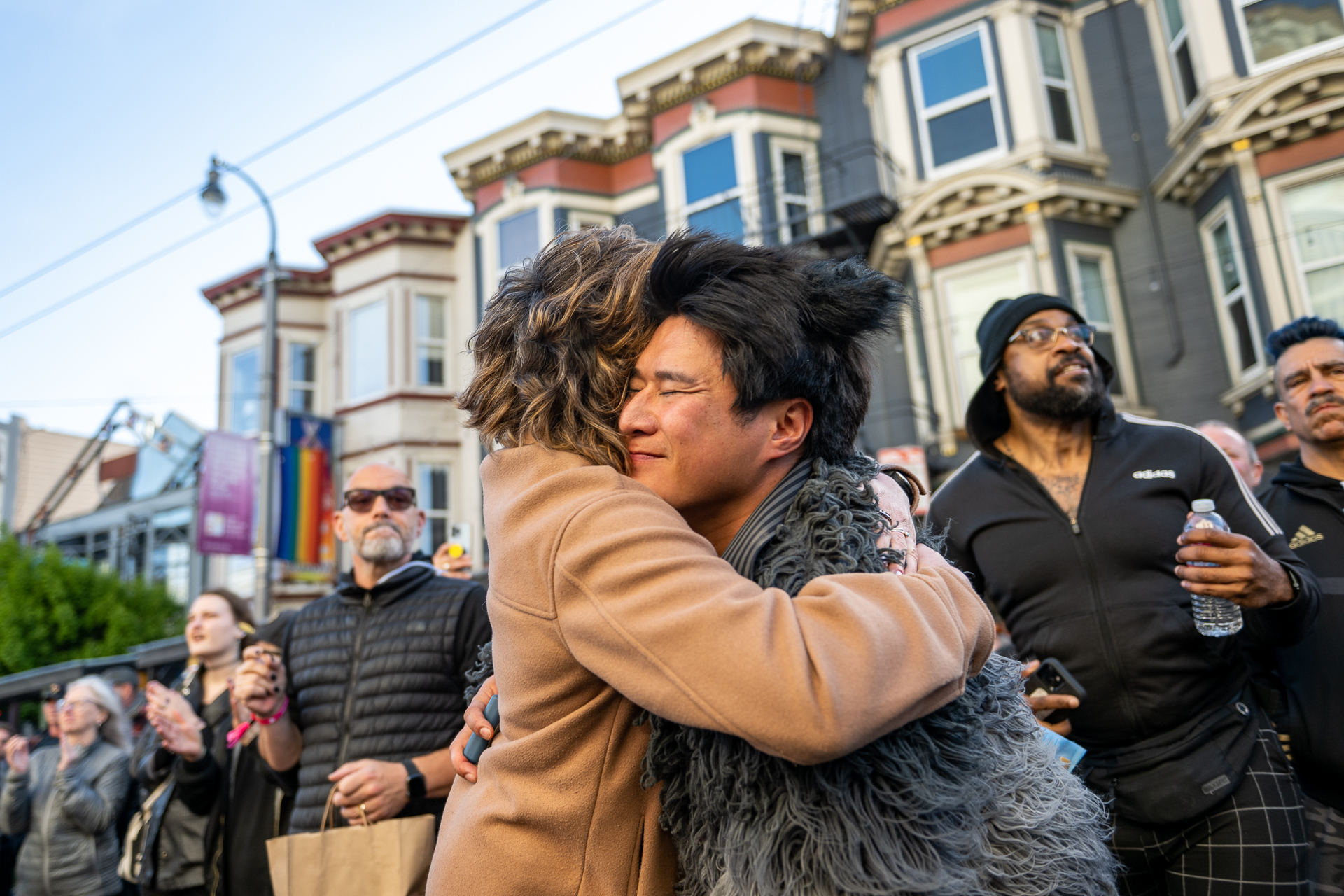
This article includes reporting from KQED’s Nastia Voynovskaya.

